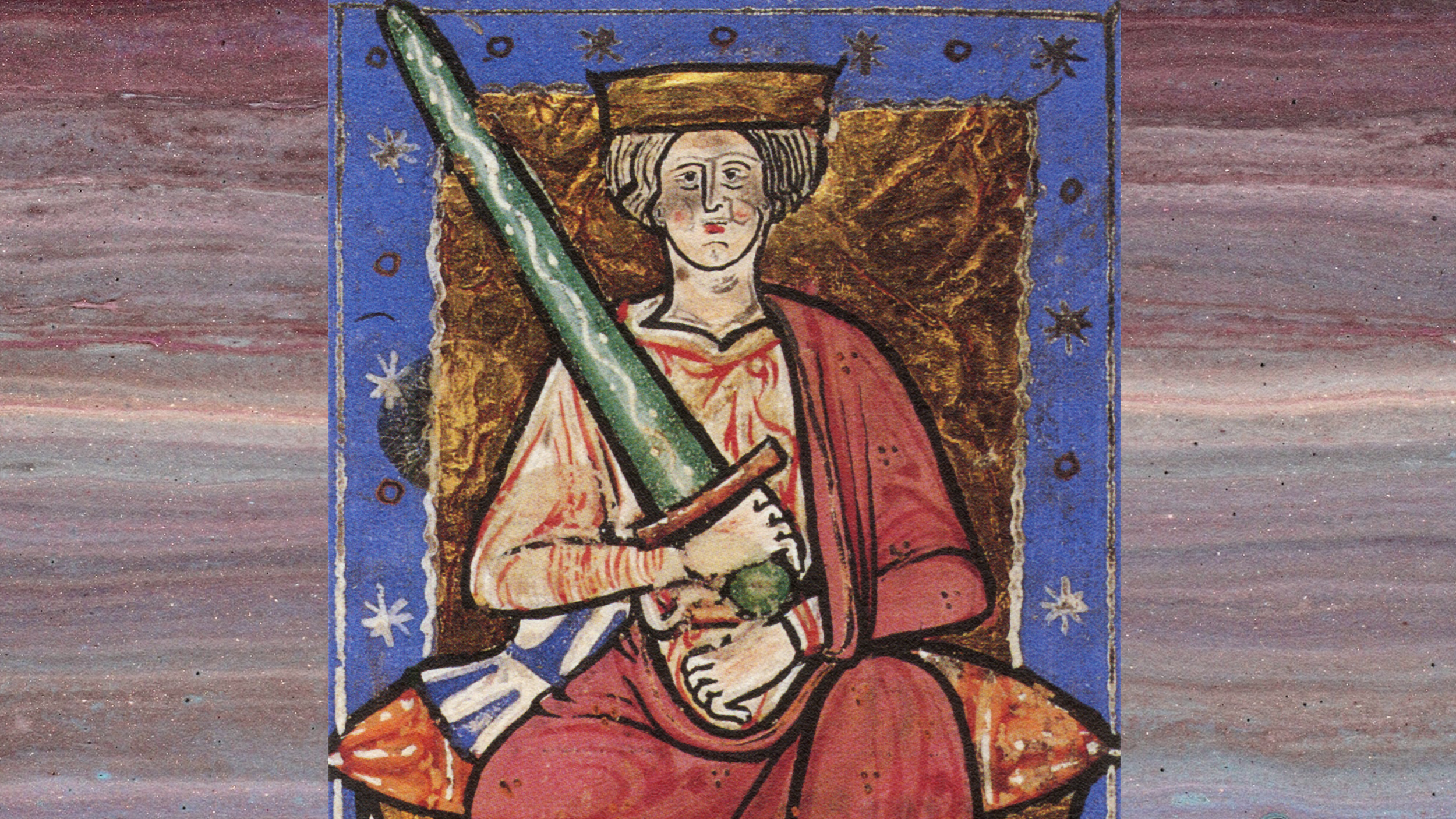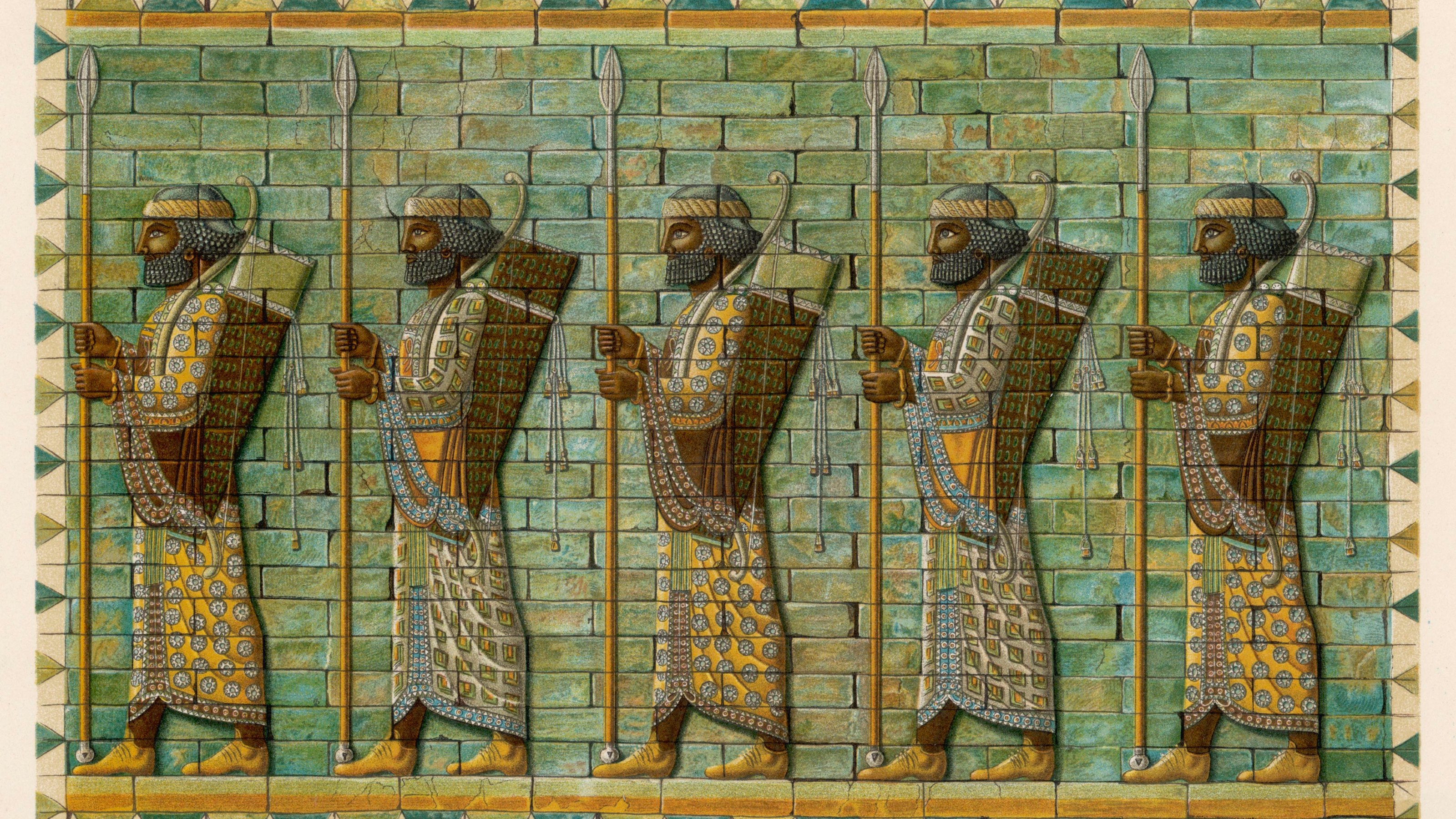4 of history’s most bizarre epithets

- Epithets are historical autobiographies that summarize a person’s life in a few words. Securing a good epithet is important for those concerned with their legacy.
- Epithets can shape how future generations perceive individuals, as they often assume that someone with a positive epithet, like “the Great,” was skilled at their job, while someone with a negative epithet, like “the Mad,” likely had enemies.
- Here we look at four examples of bizarre or comical epithets.
If you’re a person of note concerned with your legacy, you probably want a good epithet. Epithets are, in a nutshell, historical autobiographies. They are the summation of a life in one or a few words. So, securing a good epithet is key if you want future generations to remember you well. You want something like John the Good, John the Wise, or John the Sleek. But sometimes history is not so kind, and the chroniclers will slander your name with a tarry brush of ignobility. We’ll read about John the Terrible, John the Bootlicker, or John the Cow Turd.
For most people who don’t know the minutiae of world history, an epithet is all we’ve got to go on. When we read about Alexander or Darius the Great, we assume they’re pretty good at their jobs. If your name is Charles the Mad or James the Shit, then we can guess you made a few enemies in your time.
Occasionally, history will give up an epithet that needs explaining. Here we look at the stories behind four of the most peculiar and often comical epithets in history.
Æthelred the Unready
Imagine a seven-year-old boy playing in the garden with a wooden sword. It’s 978 AD, and while Saxon Britain isn’t exactly a pleasure garden, a kid is still a kid. Into the garden walks an armor-clad, sword-carrying, blood-stained warrior. He kneels.
“My Lord Æthelred,” he says. “Your mom told us to murder your brother. You are now king.”
That’s not a great start to your royal career, but things will get better, right? Well, no. Poor little Æthelred has to face the most powerful Viking force the region has seen in a century. On his tiny shoulders and with his wooden sword, the war-weary Saxons need to repel the Scandinavian hordes. I think most seven-year-old boys would be “unready.”
But “unready” in 10th-century Britain did not mean what it means today. Unready derives from unræd, which means “bad counsel” or “folly,” and so Æthelred the Unready actually just means he had awful advisors. And there was a lot of unræd going around. Æthelred floundered from defeat to defeat and never really got his court in order. Under Æthelred, Britain very nearly became entirely Viking.
Ivalo the Swineherd or Ivaylo the Cabbage
Viking berserkers and British weather are pretty bad, but they’re a cup of tea compared to what Bulgaria faced in the 13th century. Bulgaria was caught between a rock and a hard place. The rock was the Byzantine Empire, and the hard place was thousands of implacable Mongolian horse archers.
The then-Bulgarian Emperor Constantine Tikh was an incompetent lump whose only skill seemed to be getting his armies killed. Anyone could have done better than him. And that anyone was Ivaylo. Ivaylo was a peasant who, as you can guess, herded swine. He gathered together a group of other disillusioned farmers, and they marched to defend their land. Somehow, armed with little more than pitchforks and pigstink, they managed to beat back the Nogai Mongols.
Of course, Constantine Tikh was having none of this. He directed his ordered rows of professional troops northward to put down Ivaylo’s peasant revolt. And true to his inept record, Constantine Tikh was soundly defeated. It was even said that Ivaylo himself killed the emperor.
Sadly, the story ends poorly for our resourceful pigkeeper. Faced with a full invasion by the Byzantines, Ivaylo petitioned the Nogai to be their puppet king. They decided, instead, to murder him. Ivaylo was immortalized as The Swineherd or The Cabbage — a sneering, priggish, classist putdown. Today, it makes him seem cooler.
Mithridates the Poison King
Say what you want about the Mongols, but when they killed you, at least they stabbed you in the front. Some cultures, though, prefer poison. Mithridates VI of Pontus was of one such culture. Pontus was an ancient empire located in what we now call northern Turkey and was one of Rome’s most determined enemies.
Mithridates’ dad was killed by poison, and so, as a young prince, Mithridates ran out into the wilderness to embark on an anti-poison regime of microdosing. He would ingest, inject, and infuse every known poison in the ancient world to build immunity to them. When he became ruler, he carried on his obsessive and paranoid routine — especially arsenic — because that’s what killed his dad. Mithridates would take condemned criminals and, like some Turkic supervillain, force them to take this or that lethal concoction to make sure his doses were dialed in.
Then came a rather ironic twist. When the Roman general Pompey decisively defeated the Pontic armies, Mithridates tried to kill himself. He tried to poison himself. After a few hours of awkwardly sitting around and surviving, Mithridates told his guard to just stab him in the chest. That did the job.
Microdosing, today, is still called “Mithridatism,” and it’s effective for certain poisons. Given that alcohol is technically a poison, the next time you have a glass of wine, you can nerdily tell your company you’re just trying to honor the late Poison King of Pontus.
Halfdan the Bad Entertainer
When you’re a Viking, you raid hard and you play hard. After a good season of plunder and pillage, you want to come home to a mead hall packed with bawdy songs and roasting meat. If you spend so much of your life in the shivering cold, risking your life, you want to celebrate the living part.
So, if your chief happens to be somewhat joyless on that front, you’re going to let him know. Halfdan Olafsson, King of Uppsala, wasn’t a bad ruler. His raids were successful and his lands were secure. His men were rich and their share of the loot was given in good time. In happier times, he was known as Halfdan the Mild.
The problem? Vikings do not live by gold alone, and Halfdan was notoriously spartan in his celebrations. “Darling, did you enjoy Halfdan’s party last night?” your Viking wife might say. “Thor’s left nut I did! He gave us one piece of black bread, and I’ve crapped bigger pigs than the one he roasted.”
The Vikings were fans of a good epithet and even bigger fans of making fun of you. Sadly for Halfdan, and despite all his fights and all his wisdom, it’s his mocking and miserly epithet that we remember him for.





